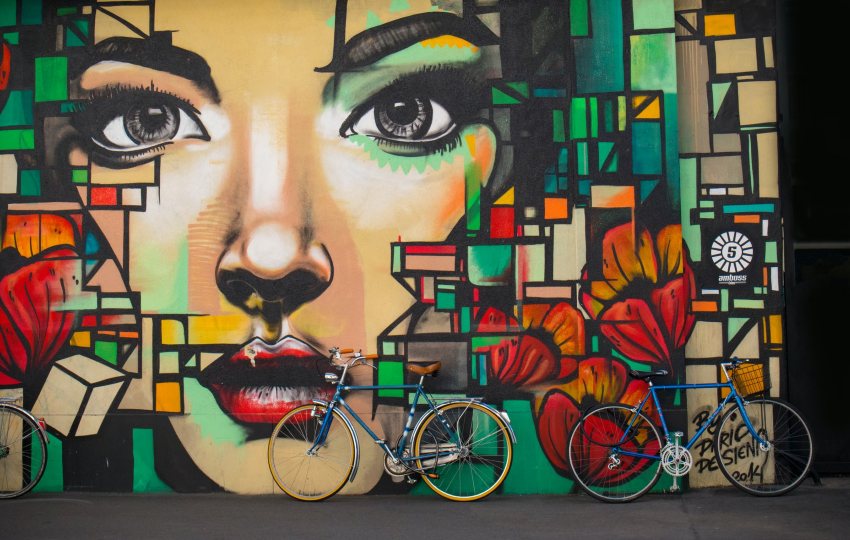The 2020 Covid-19 outbreak had a terrible impact on the cultural and creative industries (CCIs), affecting millions of professionals in the sector. In 2018 the CCIs represented 3.8% of the EU’s GDP and employed about 8.7 million people.
Social distancing and the closure of public events were the first and easy steps to contain the spread of the virus that Governments pursued. Essentially, these measures left out of job millions of creatives and workers of the cultural and creative industries worldwide. But this was not the worst part. The worst thing they had to deal with was the uncertainty of when things will get back to normal.
In this situation, the people who used to entertain us as a profession were now in an unprecedented need of state aid to survive. Thankfully, the EU created support mechanisms to support everyone in the cultural and creative industries that were essentially left without revenue. Furthermore, Europe put additional effort into helping artists monetize their art via other means like entrepreneurship.
This article will cover some of the EU support that helped artists get through the pandemic.
The European support for the CCIs
The EU is not responsible for cultural policy but this remains in governmental hands. What Europe did, in this case, was take actions in the cultural field to support the Member States in their efforts to promote cultural heritage, diversity, and mobility of professionals in the CCIs and artists. This kind of support was necessary to preserve the rich and diverse European cultural heritage.
In a state of mass cancellation of social gatherings and events, financial obligations had still to be fulfilled. For this reason, the EU proposed a set of support measures at the start of the pandemic in the second half of March 2020 to help SMEs. Additionally, the same month the EU announced the EU priorities to limit the pandemic’s impact and protection of the workers and the self-employed.
Furthermore, the Commission gave extra flexibility through a temporary State-aid framework that particularly cited the Cultural and Creative Industries as one of the most badly-affected economic sectors in terms of employment. The framework encompasses Member States’ decisions to make broadly applicable adjustments in favor of enterprises, such as deferring taxes or subsidizing part-time labor in all sectors.
These actions provided:
- Direct grants, tax benefits, and advance payments: plans to provide up to €800,000 to a firm to meet its immediate liquidity needs,
- state guarantees for loans taken out by enterprises from banks,
- protection of the financial institutions routing State aid to the economy.
Additional EU support for SMEs, and workers in all industries and especially in the Cultural and Creative Industries that were hit the hardest:
- €37 billion from Coronavirus Response Investment Initiative (CRII) in support of Healthcare, SMEs, and the labor market
- €28 billion of structural funds and the EU Solidarity Fund (EUSF) to cover labor market issues.
Additional support to the cultural and creative sectors
Apart from the support schemes that the EU came up with to support cultural businesses and creatives, EU programmes like Creative Europe still continued their critical work. Specifically, Creative Europe’s budget for 2021-2027 was significantly more than the previous programming period (€2.44 billion compared to €1.47 billion).
Other European support schemes for the CCIs:
- European Institute of Innovation and Technology’s funding of new Knowledge and Innovation Communities for the cultural and creative industries
- options under Horizon Europe
- Erasmus for Young Entrepreneurs
- Worth Partnership Project
- STARTS initiative (Innovation at the nexus of Science, Technology, and the ARTS), the STARTS Residency programme
- EU Support for digital Start-ups
A proposed solution to support the sector by the CUBE project

The severe impact of COVID-19 on the creative industry left many creatives hanging. For this reason, the CUBE Erasmus+ project came up with an idea to provide them with an alternative solution they could use to improve their situation.
Until the creative industry is back on its feet, CUBE wants to attract creatives and teach them how to become entrepreneurs.
Additionally, CUBE will not only teach the essentials of entrepreneurial thinking but will also create a cultural incubator. This incubator will provide additional guidance to artists to make their entrepreneurial ideas a reality. Essentially, the project will build a new generation of creative entrepreneurs.
With all the difficulties artists encountered in the past two years in the creative sector, now is the perfect time for artists to grow their art into something bigger. Their cultural impact will be even more significant, and they can build something monetizable to support themselves.

